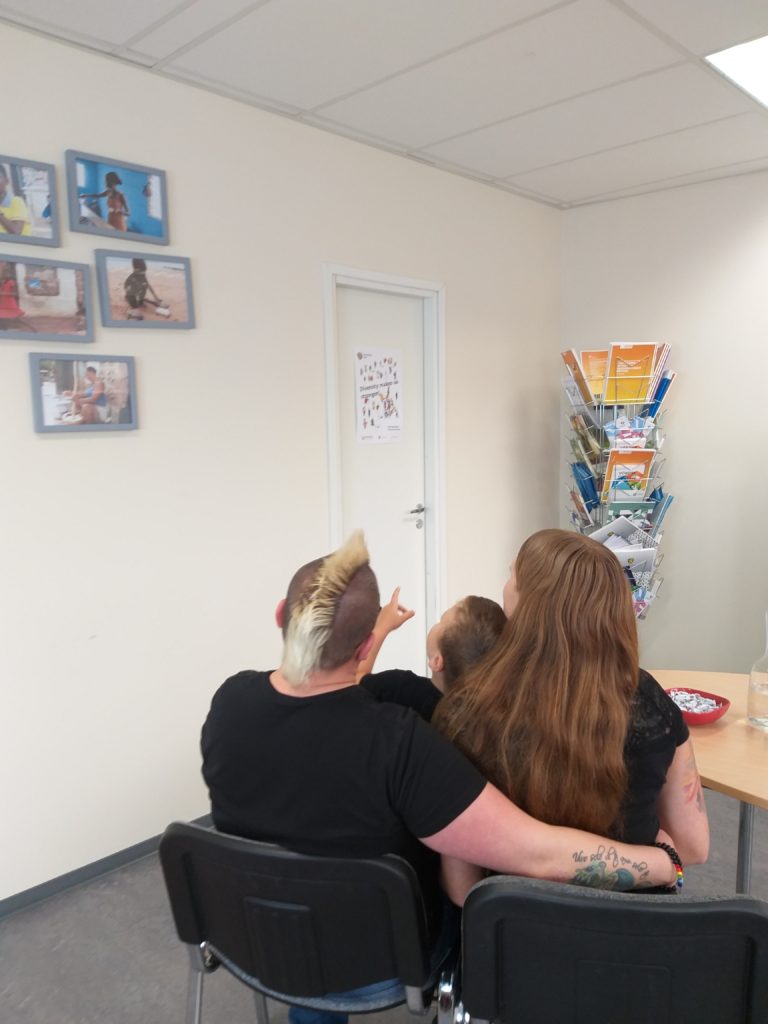Marina and Jelena have lived together as a couple for over 10 years and have a biological son who is 3-years old. In 2016, the couple officially registered their civil partnership and Marina adopted their mutual child. Their son’s birth was planned and eagerly waited for by Marina and Jelena and they have been raising their son together ever since he was born. Marina and Jelena were both marked as the child’s parents on his birth certificate. After the birth and adoption, Marina took parental leave, but today she has returned back to work and Jelena has stayed home with their son. According to law, the parent who is on parental leave at home raising a child under 8 years of age, has the possibility to be covered by health insurance by the state. However, in this case, with same-sex partners and family, the state has rejected their application/health insurance coverage.
Jelena can offer a loving home for their child but must worry about possible illnesses or accidents as well as the life of her child in these kinds of situations. There is no certainty for her in the near future and it is not in the best interest of their young son. The reason behind the complicated and unjust situation is the fact that the civil partnership act has not been ratified. Together with the Estonian Human Rights Centre and law firm Sirel and Partners on June 11th, 2019, Jelena filed a lawsuit.
Jelena wishes that judicial norms constituting social care would be covered by the state together with the social security agency. Health insurance coverage is usually guaranteed for the parent raising a child at home. Jelena believes this could also be adapted to her as she is in a civil partnership with Marina who works and pays social tax. The implemented civil partnership act proposes this privilege for same-sex partnerships as well but the act is yet to be ratified by the parliament.

The state bullies the family due to not ratified partnership act
The question is related to the Social Tax Law (SMS) §- 6, which includes special cases for paying social tax. This enacts that the state or a public-legal judicial individual pays social tax according to the law of health insurance for a parent who raises at least one child under the age of 8. Jelena turned to the Social Security Agency but got a negative response: “The civil partnership act has not yet been ratified and the privileges have not been widened to those in civil partnerships. As such, we can not offer health insurance of a marital parent to parents who have registered a civil partnership.”
The only conflict in the use of the aforementioned right stems from the fact that the law only sees married partners as righteous holders of health insurance but the family status of Jelena is fixed with the registered civil partnership act. So, in that case, the law sees registered partners as not equivalent to married partners. This kind of judicial formality cannot be the basis of denying health insurance in a country that honours human rights. This breaks Jelena’s constitutional right to the protection of family life.
Additionally, we find in the court application that the court has to consider whether the SMS § 6 lg 1 p 8 is not in contradiction with the constitution after the registered civil partnership act came in effect (as registered civil partnership act has not been ratified by the Parliament). If that is the case, the Social Security Agency and the court should leave the aforementioned norm unadopted. But it is possible to cover the judicial gap left after the non-ratification of the registered civil partnership act through different methods of judicial interpretation. In addition to other means, it is possible to leave the abovementioned provision unadopted in its current form and to emanate from the purpose of the legislator in implementation of the registered civil partnership act in order to protect the fundamental rights of the appellant while interpreting it in accordance with the Constitution. This means the state should offer health insurance to registered partners and parents alike.
Family is family
Regardless of the gender of the parents, every family wishes to live a normal family life without having to worry about their own safety and unforeseeable accidents. Support Jelena and Marina’s court battle and donate, so the family would finally have equal access to health insurance, which would grant them a sense of security at last.
Donate now